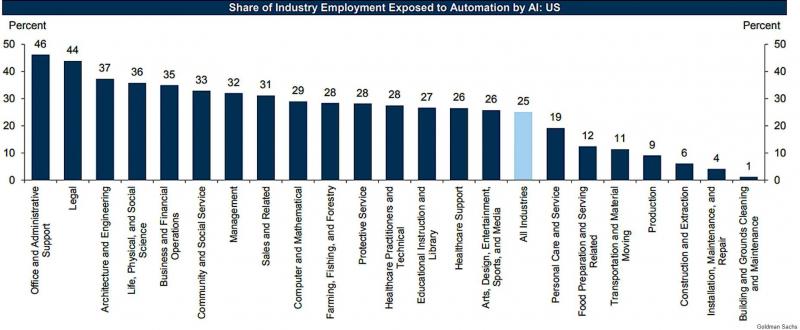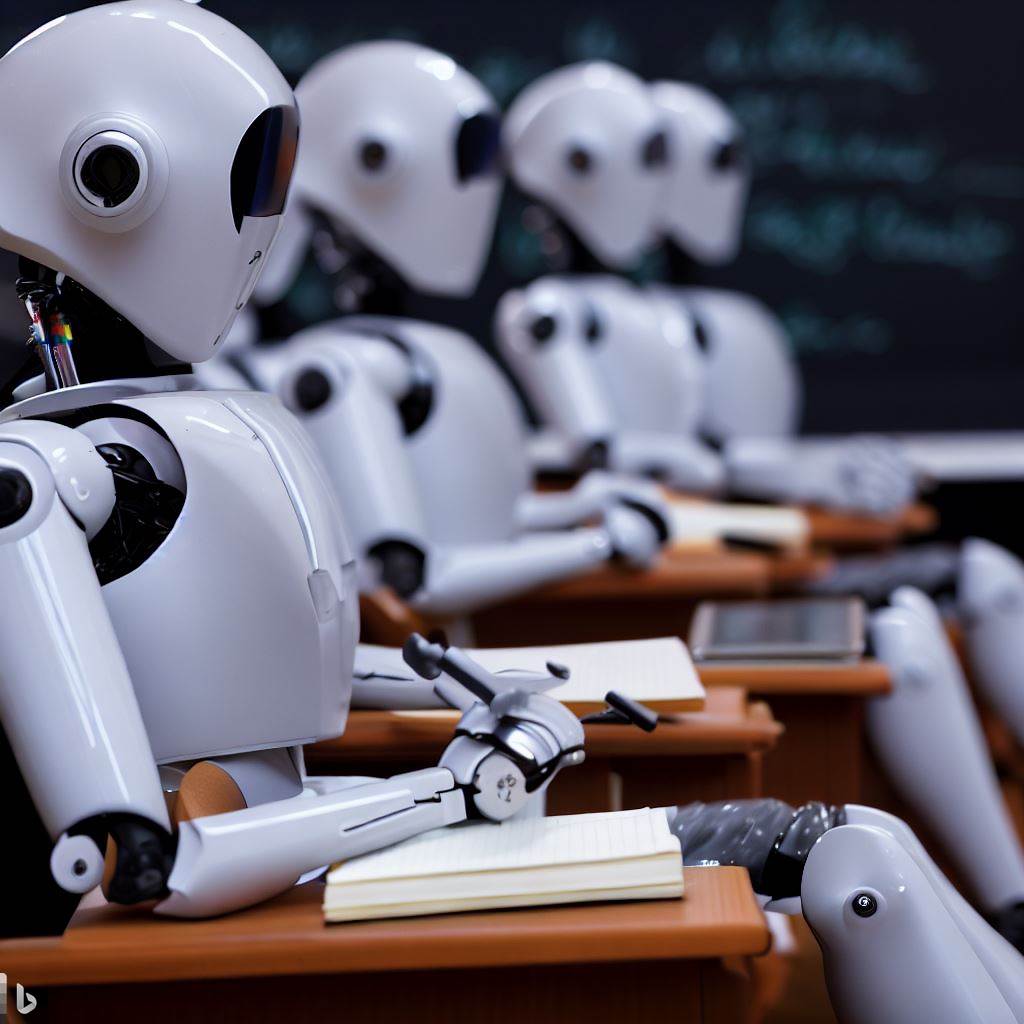It is easy to look at the AI boom as just a superficial one. We have seen various technologies hyped up to the 10th degree only to fizzle out. So, we have reason to think it’s all about chatbots writing poems. That’s increasingly looking like a wrong assumption.
Goldman Sachs researched and estimated that AI will replace the equivalent of 300 million full-time jobs in the US and Europe alone.
Different sectors will be affected differently. The report says 46% of tasks in administrative and 44% in legal professions can be automated, meaning humans can be replaced easily. The table below does not make for comfortable reading.

Source: Goldman Sachs
It’s not all bad though. Whenever we hear talk of technology replacing jobs, most are quick to point out that it creates jobs too. Research shows that 60% of workers are in jobs that did not exist in 1940. So, as some jobs have been taken over by technology, some have been created.
However, some research shows that since the 1980s, technology has not created as many jobs as it has replaced. That makes sense if you think about it. When all is said and done, technology is causing unemployment.
However, one can make sure they are not in the camp that loses their job because of technological advancement. AI need not render you unemployed.
One needs only gain new skills and they will be able to offer something in the coming AI age. Some research estimates that AI will create 97 million jobs by 2025. That’s a short period of time and yet almost 100 million jobs will be created.
Where to start
There are many jobs that AI will not easily replace. The World Economic Forum says you should gain skills in the following to avoid job loss:
- Creativity
- Co-operation
- Personal communication
- Managerial and entrepreneurial skills
- Analytical thinking
- Empathy and active listening
- Leadership and social influence
In addition, basic mathematics, strong verbal and written communication, emotional intelligence, critical thinking, and problem-solving are also important skills to cultivate.
You might also want to work in AI. Humans are still needed to write algorithms after all. If you decided to go down that path, you might want to first look at the certifications that Google and Microsoft are offering.
Google Machine Learning and AI courses
Career Essentials in Generative AI by Microsoft and LinkedIn
I would recommend you check those links out. You might find that you have it in you to learn some of these skills. That’s just the beginning but I believe that after going through this, you should be in a better position to figure out what to do next.
Also read:
Not sure how to get the most out of AI like Bard and ChatGPT? – here are prompts to get you started
Whatever you need to do, there’s an AI that can help. Get on the train, even in Zim, for free

What’s your take?